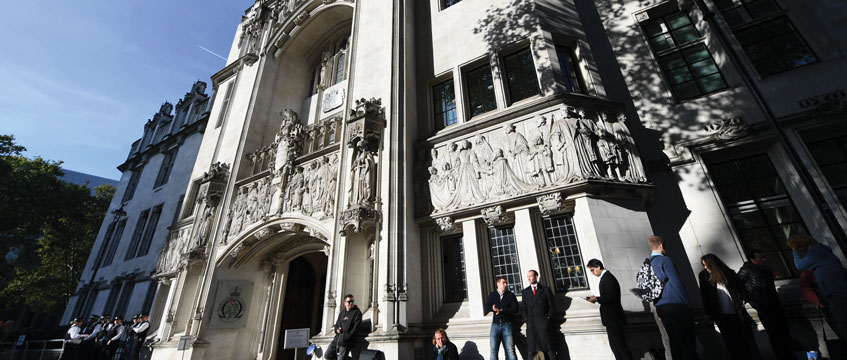Leaseholders who acquire the right to manage a building are not exempt from paying for shared services if their block is part of a larger estate, the Supreme Court ruled today.
The judgment overturns the Court of Appeal’s decision in the case of Gala Unity Ltd v Ariadne Road RTM Co.
Today’s case is was brought by FirstPort Property Services, a property management company that manages the 10-block Virginia Quay Estate in East London.
In 2014, the residents of one of the blocks, Settlers Court, acquired the right to manage the building under the Leaseholder Reform Act of 2002. Since then, Settlers Court hasn’t paid for the services that are shared across the whole estate, such as landscaping, car parking and security.
According to today’s ruling, before 2014 the residents of Settlers Court paid for 15% of the shared services, meaning that since 2015 FirstPort has only been able to recover 85% of the service charge for whole-estate services.
FirstPort took the case to court and lost as the High Court based its decision on an earlier Court of Appeal case, Gala Unity, which found that the residents who acquired the right to manage their block also acquired a right to manage facilities on the estate. That left a situation in which residents and estate managers needed to come to an agreement or fall into dispute.
Handing down judgment today, Supreme Court judge Lord Briggs said that the four-judge panel had to consider whether the Gala Unity judgment was correct.
“We have unanimously decided that it was not correct. And that the right to manage premises conferred by the 2002 Act extends only to the relevant block, in this case Settlers Court together with facilities used exclusively by flat owners in that block.
“It does not extend to the Estate Services, the use of which is shared with the residents of the other blocks of flats and houses in the Virginia Key estate.”
“The result is that the appeal is allowed and the Gala Unity case is overruled.”
According to the ruling, the particular facts in the Gala Unity case had led to a judgment that, if interpreted in all situations, would lead to unworkable results for everyone, including other residents of the estate.
“The court leans against an interpretation that produces unworkable results,” Lord Briggs said.
James Souter, a partner at law firm Charles Russell Speechlys said that today’s ruling “provides clarity on an issue which has caused many practical difficulties”.
“The decision overrules a previous Court of Appeal decision and will mean that where right to manage companies are set up to manage a single building, they do not acquire rights to manage the wider estate, even where the leaseholders in the building have rights over this land in common with others.
“Significantly, this will avoid thorny situations where an RTM company and a landlord (or multiple RTM companies) could have dual management of common areas, ultimately leading to disputes about to whom service charges were payable, or gridlock between different managers.
“This decision is significant in the context of leasehold reform and broadly aligns with the Law Commission’s proposals in this area, which aimed to address this issue. It will have significant consequences for stakeholders with an interest in multi-block estates, where RTM is contemplated or in place, and importantly will mean that leaseholders will not be subject to the management of another block’s RTM company which they would have no control over.”
FirstPort Property Services Ltd (Appellant) v Settlers Court RTM Company Ltd and others (Respondents)
Supreme Court (Briggs SCJ, Sales SCJ, Leggatt SCJ, Burrows SCJ, Burrows SCJ, Rose SCJ) 12 January 2022








